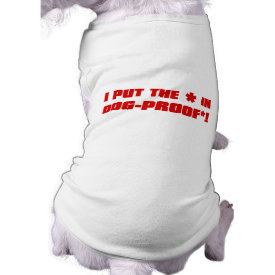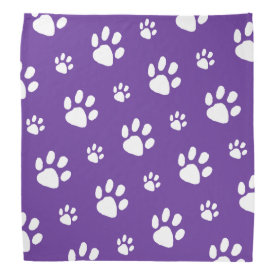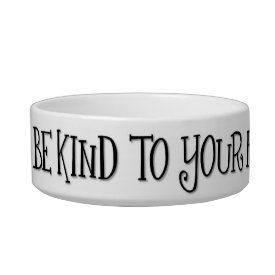Home » Archives for February 2014
Saturday, February 22, 2014
The Importance of Pet Dental Care
Think that your dog is not only the happiest pup on the block but the healthiest as well? Then make sure that you are taking care of your dog's dental health. Many pet owners are surprised to learn that a dog's dental health is as important to their overall well-being as a daily game of fetch.
Although many owners treat their dogs more like family members and less like animals, most are unaware of one of the biggest health risks for canines. Only one in five owners have ever attempted to brush their pet's teeth and only two percent brush with enough frequency to maintain proper oral health. Proper dental care is important not only in caring for your dog's teeth, but in also maintaining their overall well-being. Just like you, your dog has plaque and tartar that can lead to gum disease and even damage teeth. This could result in your dog losing teeth or developing an infection.
Dental problems in pets go way beyond bad breath and can often be hard to treat successfully. IN fact, periodontal disease is the most common health problem in dogs today. Around 80 percent of dogs suffer from it by age 2. Left untreated, dental problems can be very painful and can even affect the quality of a pet's life. Such problems can result in loose teeth, bleeding gums, mouth pain, and even infections in the heart, liver, or kidneys. To avoid these health problems, owners must take steps to care for their dog's teeth -- much like they care for their own.
Periodontal disease begins when bacteria and food debris build up along the dog's gum line. Plaque is created, and soon after, tartar forms on the teeth. Eventually the gums swell, and pockets form that can trap bacteria and lead to more serious problems. Small-breed dogs under 20 pounds are at an even greater risk for dental problems than larger breeds. Their teeth are excessively large for their small jaws and thus the teeth tend to be crowded in their small mouths.
Learning how to care for your dog's dental health needs at home can save you a lot of money over your dog's lifetime. So what can you do to improve your dog's dental health? Believe it or not, you should try to brush your dog's teeth at least once every day. If you haven't already developed a dental hygiene routine for your dog, you may need to take it slow and easy to get them used to the idea. Begin by getting him or her used to you holding them and looking inside their mouth. If you have an older dog, just getting the dog to remain still long enough to look in their mouth may be a challenge at first. Once they get comfortable with this, start lifting up their lips and moving their tongue around so you can actually see their teeth. These first couple of steps may take your dog some time to get used to, so be patient.
Once your dog is comfortable with you inspecting with their mouth, ask your veterinarian for a toothpaste recommendation. Start by using the toothpaste on your finger for a few days to get your dog used to its taste and feel. Your dog will probably enjoy this, especially if is a flavored toothpaste, and will definitely love the extra attention. Once your dog is accustomed to this, you can begin using a fingertip or traditional bristled brush to apply the toothpaste.
If by some chance you have a dog who absolutely will not let you near their mouth, let alone submit to tooth brushing, there are some alternative ways to support dental health. First of all, your veterinarian can recommend a dental rinse that can be added to your dog's water bowl to help rid the teeth of debris. Dental chews and toys can also help clean the teeth. But be careful to choose products that are not hard enough to damage your dog's teeth. And be sure to monitor their playtime, as toys can be a choking hazard. Finally, there are now some dog foods available that are intended to help promote dental health. These foods are designed to scrub the teeth as the dog chews, thereby removing plaque and tartar.
Remember, as part of providing proper care for your dog, you cannot omit dental health. Taking the time now to provide dental care on a regular basis will save you many costly vet bills as time goes by.
Check Out Our Photo Album on Google Plus!
Want a behind the scenes look at the dogs who run Two Dogs Blogging? Then check out this album where we are featuring some of our favorite photos.
Wednesday, February 12, 2014
How to Tell if Your Cat Loves You
Those who are new to cat companionship may find their personalities and behavior to be very surprising. One example is how they bond with humans. Although most enjoy attention, cats are different from other animals such as dogs in how they seek and return affection. Additionally, different breeds of cats may bond differently than others with their owners.
Some experts say that cats are strictly independent animals who have only chosen to associate with humans as a survival strategy. However, experienced cat owners will tell you that cats are actually quite adept at forming bonds with people, although they are very particular. The more time you spend around your cat, the more he or she will bond with you. Over the years, you will find that the bond you create with your pet can grow very strong – into one that simply cannot be broken.
You can tell how your cat is feeling by paying attention to their body language. Some cats will show a lot of affection while others will show less. Here are some ways your cat may show affection for you:
Vocalization: Purring is a complex feline communication tool. While purring is most often associated with a happy, contented cat, some may purr when they are stress or in need of comfort. However, a purring cat laying across your lap or by your side is an indication of a cat that is looking to bond. You can take this as sure sign of feline bliss.
Grooming You: For cats, grooming isn't just about keeping clean. Grooming communicates a cat's fondness for a person, as well as a sense of belonging. It is way for them to signal that they consider you a part of their family.
Rubbing Against You: When your cat rubs his or her head against you, it's not just for a cuddle. They are actually marking you as their property with pheromones released from their face. You can also consider this a sign of affection to you as cats tend to scent-mark the things that are most important to them.
Kneading: This rhythmic, alternating motion is another sign of a happy cat. Your cat may paw you like it once did his mother as a way to show affection and again mark you with its pheromones.
Making Eye Contact: Your cat may show affection to you by slowly blinking their eyes at you. This is known as a "Kitty Kiss" and is a feline social signal of nonaggression. The next time you see your cat do this, return the favor, and give them a kiss back!
Gift Giving: When your cat leaves a dead bird in the middle of the living room or a snake in your bed, it is not meant to frighten you. Indeed, this "gift" is yet another sign of feline affection. So, the proper response is not to yell hysterically, you should instead show your cat how pleased you are that they considered you worthy of such a thoughtful gift.
Welcome Home: Do you see your cat in a window waiting for you to enter your home as you approach the front door? If you have been gone for a while, your cat may rush towards the door and demand your immediate attention. This is normal behavior and yet another sign of affection towards you.
Submissive Behavior: As a sign of complete trust, your cat may roll over and present their stomach. This, in cat behavior, is the ultimate form of submission as it leaves them in a position vulnerable to attack. You should feel honored at this expression of faith.
Following You: If your cat likes to follow you around from room to room, they are showing that they want to be in the same place that you are although they may avoid actual contact. With more aloof cats who shun physical contact, this may be the only sign of affection that you see.
If you have been wondering how cats show affection, we hope that this article has provided some answers for you. However, you should remember that your cat is an individual who will likely show feelings is his or her own way.





